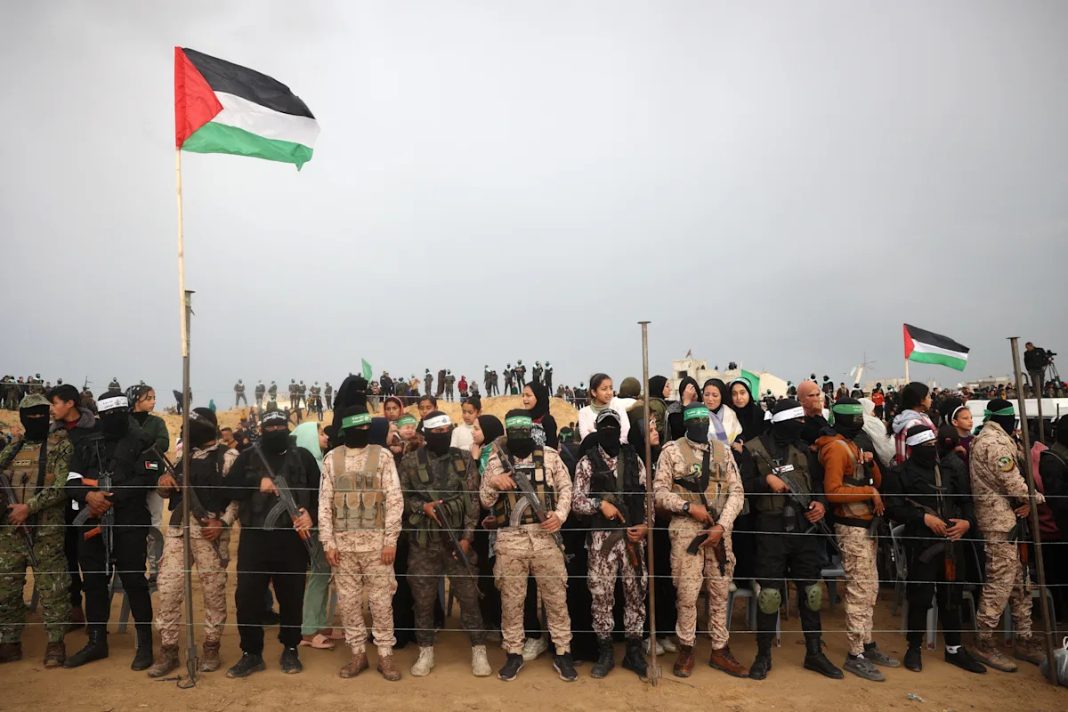Israel and Hamas may have agreed to the first phase of a United States-backed ceasefire deal, but contentious differences between the two sides still remain, particularly when it comes to the fate of the Palestinian group’s weapons.
Israel has long insisted that Hamas surrender all of its weapons if its two-year war on Gaza is to end, as well as demanding that the group relinquish governance of the Palestinian enclave and dissolve itself as an organisation.
For its part, Hamas has publicly rejected calls to give up its weapons, but experts say that the group has expressed openness in private to hand over some of its arsenal.
“When it comes to disarmament, this is where you have seen the biggest shift in Hamas’s position,” said Hugh Lovatt, an expert on Israel-Palestine with the European Council on Foreign Relations (ECFR).
“[Hamas officials] have said in private to interlocutors that the group may be open to a decommissioning process of Hamas’s offensive weapons,” he told Al Jazeera.
Shaky ceasefire
Negotiations over Hamas’s arsenal could torpedo the ceasefire and prompt Israel to resume its genocidal war on the destitute and beleaguered Palestinian population in Gaza, analysts said.
An armed group has the right to bear arms and resist an occupying power in line with international humanitarian law – the main framework referenced to protect civilians in times of war.
Yet, Israel and its Western allies have historically demanded that Palestinian factions give up armed resistance as a precondition to launching a peace process ostensibly aimed at ending Israel’s occupation over Palestinian territories.
This was the framework underpinning the Oslo Peace Accords in the 1990s, signed by then Palestinian and Israeli leaders.
Israel is likely to try and make similar demands this time around, but Hamas is unlikely to completely disarm, according to Azmi Keshawi, a Palestinian from Gaza and a researcher with the International Crisis Group (ICG).
He said that he could only envision Hamas surrendering some “offensive weapons” such as short-range and long-range missles.
However, he believes Hamas will never give up its small arms and light weapons, nor hand over a map of its sophisticated tunnel network, which it spent decades building to resist Israel.
“[Hamas] will only give up [light] weapons when there is no need for these weapons. This means they will only hand them over to a Palestinian leadership that assumes control of a state after Israel ends its occupation,” Keshawi told Al Jazeera.
Power vacuum?
Hamas was the largest of several armed groups in Gaza before Israel began its war on October 7, 2023, after the Hamas-led attack on southern Israel.
Some of these groups include Palestinian Islamic Jihad (PIJ), the Popular Front for the Liberation of Palestine (PFLP) and the Al-Aqsa Martyrs Brigades.
These groups have long been committed to waging armed resistance against Israel, and it is unclear to what degree they have been degraded by Israel’s relentless carpet bombing over the last two years.
During Israel’s genocide – recognised as such by scholars, the United Nations and human rights groups – Israel has also propped up notorious gangs to steal and profiteer off the little aid it has allowed into the Gaza Strip.
Many Palestinians in Gaza believe Hamas should preserve some military capabilities to stop these gangs from exploiting a possible power vacuum, Taghreed Khodary, an analyst on Israel-Palestine who is from Gaza, told Al Jazeera.
“Israel created gangs and gave them weapons and guns to kill their own people [in Gaza]. Now Israel wants to expel Hamas, but Hamas is needed to maintain internal security,” she said.
“Hamas is very good at providing security,” she stressed.
Lovatt, from ECFR, added that Hamas may be willing to cooperate with an interim task force deployed to provide security and oversee a partial decommissioning of its weapons.
However, he said that Hamas would only agree to coordinating with such a force if its mandate clearly stipulates that it will not counter “terrorism” in any way.
“I’m sure there is very little appetite in Western capitals to play that ‘counterterrorism’ role, and it certainly wouldn’t be acceptable to Hamas. It would expose the international task force as explicitly serving Israel’s goals,” Lovatt told Al Jazeera.
‘Hamas as an idea’
Throughout Israel’s genocide, Israel has claimed that its war aim is to ostensibly dismantle Hamas. But Keshawi, the ICG researcher, said Hamas will never be fully defeated.
He predicts the group will absorb thousands of destitute and vengeful young men into its ranks in the coming years. To many people, he said, Hamas is not merely an organisation, but an “idea” that symbolises resistance.
“The [group] has set an example for the whole Arab world. They fought a war that nobody thought they could fight, even though the cost was very high,” Keshawi told Al Jazeera.
Still, Lovatt said the group remains pragmatic and is willing to make concessions to extend the ceasefire for as long as possible.
He noted that the sustainability of the ceasefire ultimately hinges on US President Donald Trump and other Western leaders reining in Israel and its maximalist demands.
“There is a very high risk that Israel is able to win the argument in Western capitals … that Hamas must be fully demilitarised [before the occupation ends],” he said.
“If that happens, then it will be a new pretext for Western states to let Israel off the hook as happened under the Oslo Accords,” Lovatt told Al Jazeera.

